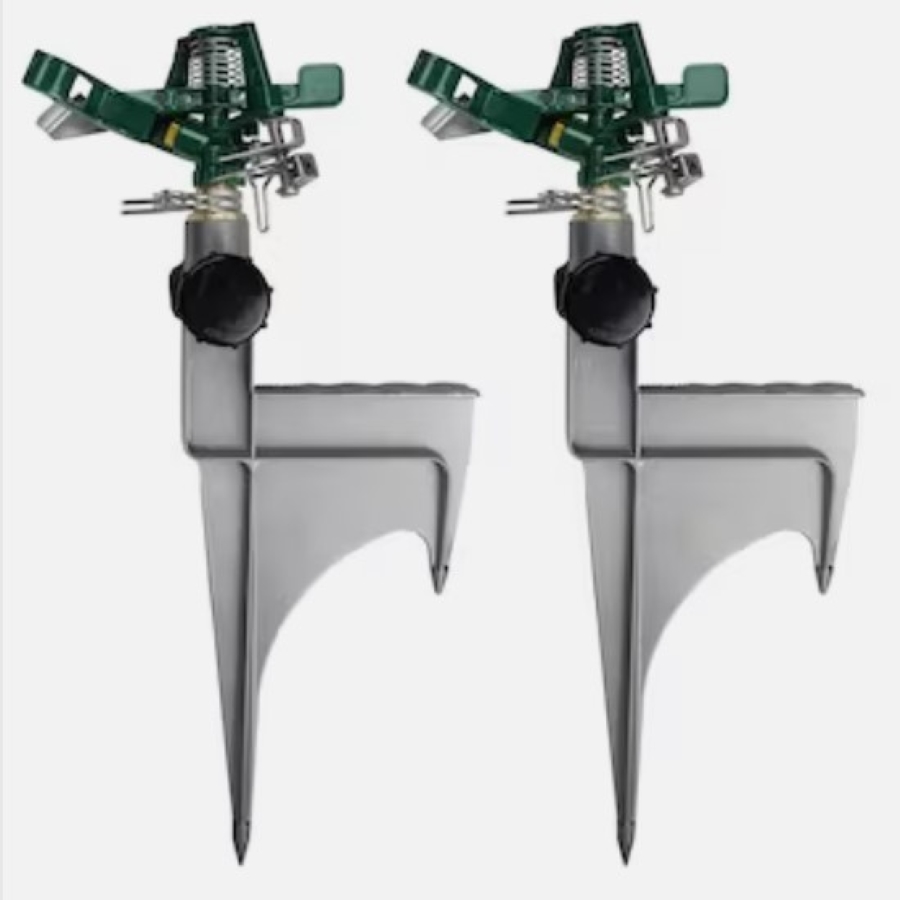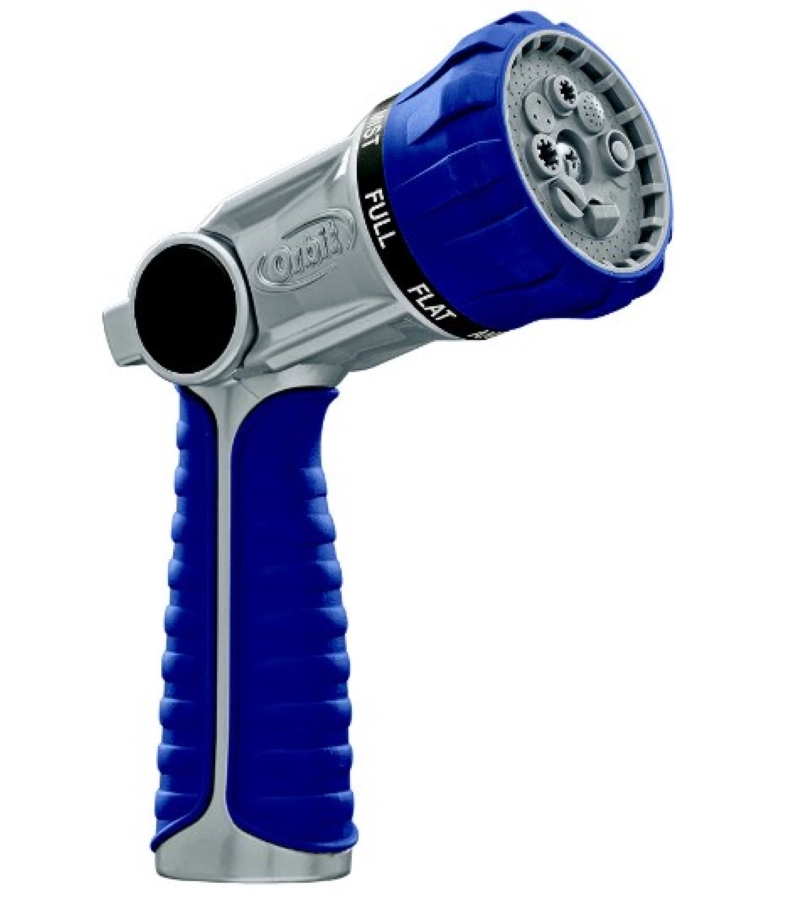How to fix brown patches in a lawn – expert tips on salvaging your grass, and what you should never do
Gardening experts reveal how to maintain your best-looking lawn ever, all summer long


The Livingetc newsletters are your inside source for what’s shaping interiors now - and what’s next. Discover trend forecasts, smart style ideas, and curated shopping inspiration that brings design to life. Subscribe today and stay ahead of the curve.
You are now subscribed
Your newsletter sign-up was successful
During a heatwave, it is likely your grass will be suffering. It is unsurprising that currently, when you look out at your backyard you a greeted by a scorched lawn. It is a sight for sore eyes and a force you may be feeling powerless against.
The once luscious grass has lost its luster for the season you might think, and you're resigned to waiting for your lush lawn to come back later in the year. While it's true brown patches are one of the signs of an unhealthy lawn that will likely eventually fix itself, there are some things you can do to help salvage your grass and rejuvenate it to its former glory.
We enlisted some gardening and lawn professionals to teach us how to fix brown grass. Time to give your lawn some TLC and reap the rewards for the rest of summer.
1. Test if the lawn is dead
The first thing you need to establish when dealing with brown grass is if it is still alive. Whilst you might think brown grass equals dead grass, you would be wrong. It can be brown and still holding on.
'First, let’s discern whether the grass is actually dead or just dormant,' says CEO of Greenpal and lawn expert Bryan Clayton. 'A simple tug test should do the trick. Grab a handful of brown grass and give it a gentle pull. If it comes out easily with the roots and all, I hate to break it to you, but it's dead. However, if it remains firm, then it's just dormant, and there's hope!'
Once you have established the grass was just sleeping you can continue on your path to restoration. If, however, you find it is dead you will need to follow a different course of action.
2. Water deeply
To help save your brown grass it is important to rehydrate it. 'A deep watering in the early morning or late evening can help revive a lawn,' says expert gardener Tony O'Neill.
The Livingetc newsletters are your inside source for what’s shaping interiors now - and what’s next. Discover trend forecasts, smart style ideas, and curated shopping inspiration that brings design to life. Subscribe today and stay ahead of the curve.
However, this doesn't mean sticking a sprinkler on for 12 hours a day. 'Water Deeply, Not Frequently,' advises Bryan, 'this is a tip I've tested time and again. This encourages roots to grow deeper into the soil. Aim for at least an inch of water weekly.'
When considering when is the best time to water your garden, also think about how much water you are using. One drench, early in the morning to ensure that water penetrates the grass and doesn't evaporate, is superior to multiple shallow showers.
3. Keep it long
Our lawn aficionado Bryan advises you to take it easy on the lawn mowing and keeping the grass nice and long when you are suffering from browning.
'Mow on the higher side,' he says. 'Let me explain why this helps. Taller grass shades the soil, reducing water evaporation. It’s like giving your lawn its very own umbrella.'
Ensuring your grass isn't too short is the best way to help it retain moisture throughout the summer months when it is constantly being stripped of its water content, so use this tip to grow grass in hot, dry weather.
What not to do to brown grass
1. Don't overwater
'Overwatering can worsen the situation, so balancing these activities is vital,' warns Tony. You might think you are doing your lawn a favour but inadvertently you might be making the situation worse.
'It's a common mistake,' says Bryan, 'watering too much can drown the roots and even cause mold. And if the grass remains waterlogged, it becomes a breeding ground for diseases.'
WHilst you may be eager to get your lawn back up to standards it is important not to rush the process as in doing so you may cause more harm than good. For strong and healthy grass give it time.
2. Avoid walking on it
'Walking or allowing heavy traffic on the scorched lawn can worsen the damage to your brown lawn,' says Zahid Adnan from The Plant Bible.
When you are outdoor dining and enjoying the balmy summer nights in your backyard it can be easy to forget about the scorched patches of grass. Try to minimize the amount it is trodden on as it will extend the treatment period.
The grass is already stressed out on its last straw (literally) walking over it frequently will not help its recovery. Brown grass is not a quick thing to fix therefore every marginal thing we can do helps.
3. Don't use fertilizer
This might sound counterintuitive but we will trust the experts on this one.
'Applying chemical fertilizers during extreme heat can harm the grass further,' says Zahid. Traditionally you would think a suffering plant is in need of extra nutrients, but in the case of brown grass, this is untrue.
'Fertilizing a stressed lawn during a hot spell is like asking someone to run a marathon after they’ve just done one,' explains Bryan. 'It’s excessive and can burn the grass even more.'
Instead of using harsh chemicals, we should focus on nurturing and repairing the grass. This is the technique that will rejuvenate your lawn
Top picks to maintain a luscious lawn

Formerly a news writer for Livingetc, Amy completed an MA in Magazine Journalism at City, University of London, and has experience writing for Women’s lifestyle publications across arts, culture, and beauty. She has a particular love for the minimalist aesthetic mixed with mid-century furniture, especially combining unique vintage finds with more modern pieces. Her previous work in luxury jewellery has given her a keen eye for beautiful things and clever design, that plays into her love of interiors. As a result, Amy will often be heard justifying homeware purchases as 'an investment', wise words to live by.


